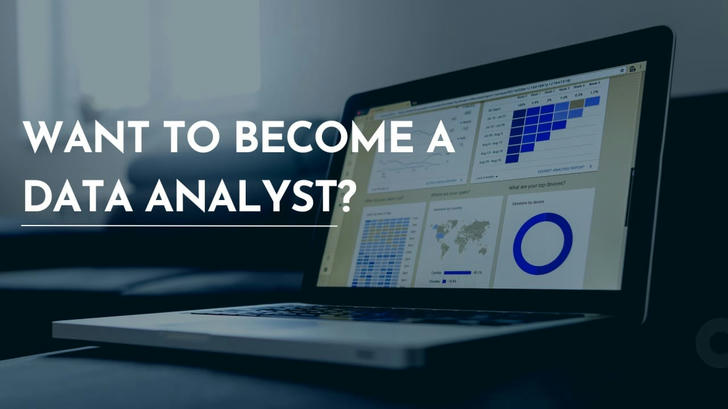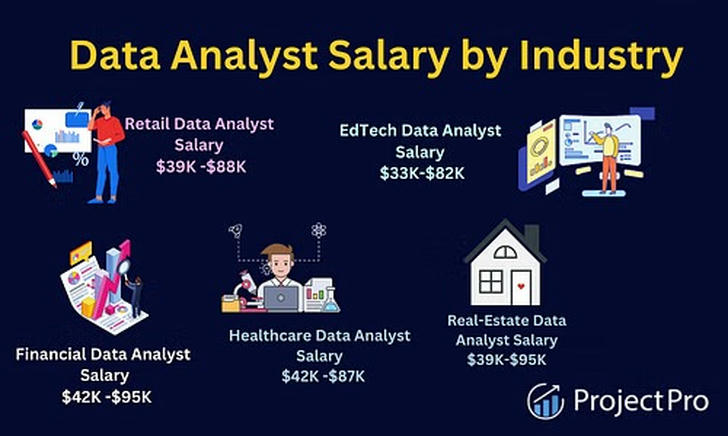Unlock Your Career with a Data Analysis Course: Practical Skills for a Data-Driven Future🌱👶
In today’s rapidly evolving job market, data is the new currency. Every industry, from healthcare to finance to retail, is powered by insights derived from data. But here’s the challenge: not everyone knows how to extract meaningful insights from raw numbers. That’s where data analysts come in. They are the ones who turn data into valuable insights that inform business decisions and drive growth.
If you're looking to enter this high-demand field, a data analysis course could be the key to unlocking a rewarding career. In this article, we’ll break down the value of a data analysis course, explore what you’ll learn, and provide concrete examples of how this skill can lead to substantial career growth.

What You’ll Learn in a Data Analysis Course
A comprehensive data analysis course will teach you how to manipulate, interpret, and visualize data in a way that solves real-world problems. But what exactly does that look like? Here are the core skills and tools you can expect to master:
1. Data Cleaning: Getting Your Hands Dirty
Before you can analyze any data, you need to make sure it’s clean and organized. Data often comes with inconsistencies, missing values, or outliers that can skew results. Learning how to identify and fix these issues is a foundational skill in data analysis.
For example, imagine you're working with customer survey data. Some responses may be missing, or there might be duplicate entries. By learning how to clean this data using Python, Excel, or SQL, you can ensure that your analysis is accurate. A well-structured dataset is the first step toward actionable insights.
2. Statistical Analysis: The Backbone of Insight
Data analysis isn’t just about reviewing numbers—it’s about using statistical methods to uncover patterns, trends, and correlations that can drive decisions.
- Regression analysis allows you to predict future trends based on historical data.
- Hypothesis testing helps you validate assumptions and test theories.
- Descriptive statistics help you summarize and describe the main features of a dataset.
For instance, imagine you work in sales forecasting at a retail company. By using regression analysis, you could predict how much inventory you should order based on past sales data and seasonal trends. This could significantly reduce stockouts and overstock situations.
3. Data Visualization: Telling the Story with Charts
Even if you have the best analysis, it’s useless if you can’t communicate it clearly. That’s where data visualization comes in. In a data analysis course, you’ll learn to use tools like Tableau and Power BI to turn data into clear, engaging visuals that tell a compelling story.
For example, let’s say you’ve analyzed customer behavior on an e-commerce site. Instead of presenting raw numbers, you could use a heat map to show which parts of the website attract the most traffic or a bar chart to compare sales across different products. These visual tools make it easier for decision-makers to understand insights at a glance.
4. Real-World Tools: SQL, Python, Excel
A solid data analysis course will teach you to use industry-standard tools. Here’s a brief overview of what you’ll likely encounter:
- SQL: The backbone of data querying. SQL helps you extract data from relational databases, whether you're pulling customer records or sales transactions.
- Python: Widely used for more advanced data manipulation, automation, and analysis. Python’s libraries, like pandas and numpy, are essential for handling large datasets.
- Excel: While Excel might seem basic, it’s still one of the most powerful and versatile tools for data analysis. From pivot tables to advanced formulas, mastering Excel will allow you to analyze and visualize data quickly.
These tools are critical to performing tasks like writing queries to pull data from a database or automating data preparation processes with Python.
Why a Data Analysis Course is Worth Your Investment
1. High Demand Across Industries
Data analysis skills are in demand across all sectors, and this trend is only expected to grow. The U.S. Bureau of Labor Statistics reports that jobs in data-related fields, such as data scientists and analysts, are expected to grow 23% from 2021 to 2031—much faster than the average for other occupations.
Take Rachel, for example. She worked as a marketing coordinator but wanted to transition into data-driven roles. After completing a data analysis course, she moved into a data analyst role at a major tech company, earning $85,000 per year—a significant jump from her previous salary of $55,000. Data analysis skills are essential for any company looking to make informed decisions, whether it’s for marketing, operations, or strategic planning.
2. Earning Potential
Data analysts enjoy competitive salaries due to the high demand for their expertise. On average, a data analyst in the U.S. earns around $65,000 annually. However, with experience and specialization, salaries can rise significantly.
For instance:
- Entry-Level (0-2 years): Around $55,000 to $70,000 per year.
- Mid-Level (3-5 years): Around $75,000 to $95,000 per year.
- Senior-Level (5+ years): Around $100,000 to $120,000 per year.

Specialized roles, such as data scientists or business intelligence analysts, can earn even more. Consider John, who took a six-month data analysis bootcamp and transitioned from a marketing manager to a data-driven marketing strategist. His salary increased from $60,000 to $95,000 in less than a year, thanks to his new ability to leverage data insights.
3. Career Flexibility
One of the biggest advantages of a career in data analysis is its flexibility. Data analysis isn’t limited to one sector; nearly every industry today needs data-driven decision-making. From finance to healthcare to education, the skills you acquire in a data analysis course are transferable across various fields.
Take Sophia, a former accounting manager who transitioned into the finance tech sector. After completing a data analysis course, she joined a startup that used data to drive financial decision-making, helping companies optimize investments and manage risks. Her career trajectory skyrocketed, and she now holds a senior data analyst position, making $110,000 annually.
Practical Implementation: How to Make the Most of Your Data Analysis Course
1. Build a Portfolio
As you progress through your data analysis course, start building a portfolio. Work on real-world projects that demonstrate your ability to clean, analyze, and visualize data. You can source datasets from websites like Kaggle, or even analyze public data such as census reports or stock market trends. A portfolio is a tangible way to showcase your skills to potential employers.
2. Focus on Industry-Specific Use Cases
Instead of just learning generic concepts, apply your skills to an industry that interests you. Whether it's healthcare, marketing, or e-commerce, use data analysis to solve specific problems within that field. This targeted approach will make you more attractive to employers within those industries.
For example, if you’re interested in e-commerce, analyze customer purchasing patterns to predict trends and optimize inventory management. If you’re passionate about healthcare, work with medical data to track patient outcomes and identify patterns in treatment efficacy. Tailoring your learning to a specific industry will give you a competitive edge in the job market.
3. Networking and Job Search
After completing your course, make use of professional networks like LinkedIn to connect with industry professionals. Many job openings in data analysis are posted on LinkedIn and specialized job boards. Additionally, networking will allow you to learn about the latest industry trends and challenges, keeping your skills fresh and relevant.
Conclusion: Is a Data Analysis Course Right for You?
In today’s data-driven world, the ability to analyze and interpret data is not just a nice-to-have—it’s a necessity. A data analysis course offers you the opportunity to gain highly transferable skills that are in demand across industries, making it a smart investment for your career.
By learning how to clean and prepare data, apply statistical methods, and visualize insights, you’ll be ready to tackle complex business problems and help organizations make more informed, data-driven decisions. Whether you're starting from scratch or looking to pivot into a more data-centric role, a data analysis course can open doors to higher salaries, greater career flexibility, and long-term job security.
